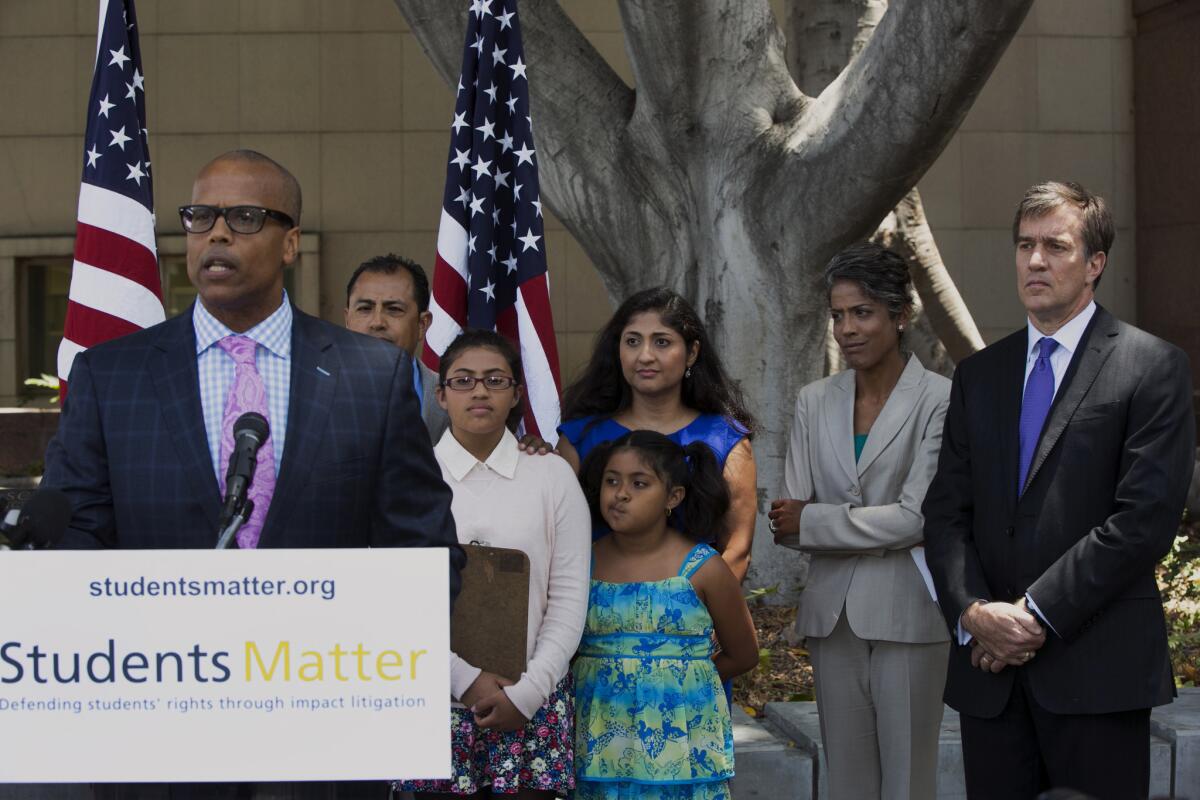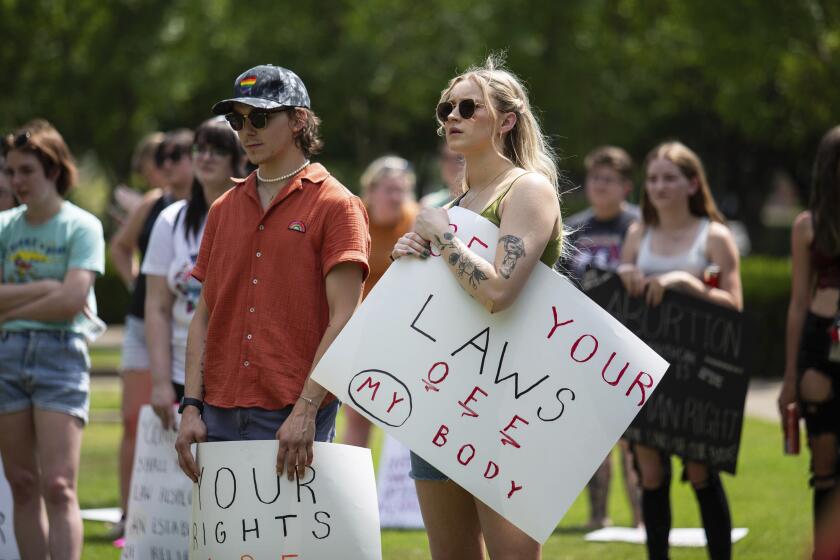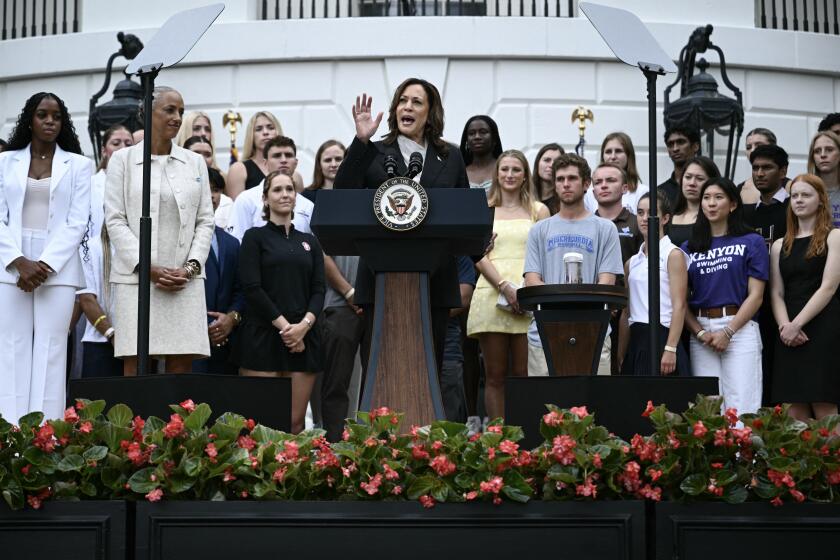Editorial: Vergara ruling offers California an opportunity to change a broken system

California’s extraordinary protections for public school teachers were dealt a heavy blow Tuesday when a Los Angeles County Superior Court judge ruled that the state’s tenure laws unconstitutionally deprive students of an adequate education. To this extent, the judge’s opinion was absolutely correct: The tenure laws are bad policy. In almost no other field of work is it remotely as hard to fire someone for incompetence, or for not doing the job at all. Lawmakers have been far too deferential to the powerful California Teachers Assn. over the years, and now they have been given a strong prod to change their ways.
The 16-page ruling by Judge Rolf M. Treu, which is almost certain to be appealed, describes California as an outlier on teacher protection when compared with other states. Most states give school districts a few years to decide whether a new teacher deserves tenure; here, the decision must be made within about a year and a half. When teachers are laid off in this state, seniority trumps performance. Elsewhere, seniority is a consideration, but performance matters too.
The decision in Vergara vs. California also describes the tortuous procedure schools must go through to fire teachers, a process that makes it so difficult to get rid of even the worst teachers that many schools don’t bother trying.
What Treu’s ruling leaves less clear is why these policies, problematic as they are, represent an unconstitutional barrier to a decent education. Treu quotes one witness as saying that perhaps 1% to 3% of teachers are grossly ineffective. Those numbers don’t indicate that such teachers are the key factor in the state’s achievement woes.
Still, the ruling stands as an important marker of the decades-long frustration with the tenure laws — a frustration legislators should heed. Whether Tuesday’s ruling stands or is overturned on appeal, it is unlikely that parents or the public will stand for the old, inefficient policies much longer.
Treu’s ruling is not prescriptive, nor does it call for eliminating due process for fired teachers. The Legislature can, and should, continue to offer reasonable protections for teachers, because without them, schools have too much incentive to replace higher-paid, experienced teachers with lower-paid beginners. There are common-sense ways to provide such protections — for example, by allowing binding arbitration in disputed firings rather than requiring disputes to be decided, as they currently are, by an ad hoc panel with so many rules and restrictions that it can take years just to get to a hearing.
It’s time for the state to stop defending laws that are indefensible, and to get to work on ones that are fairer to students.
More to Read
A cure for the common opinion
Get thought-provoking perspectives with our weekly newsletter.
You may occasionally receive promotional content from the Los Angeles Times.






